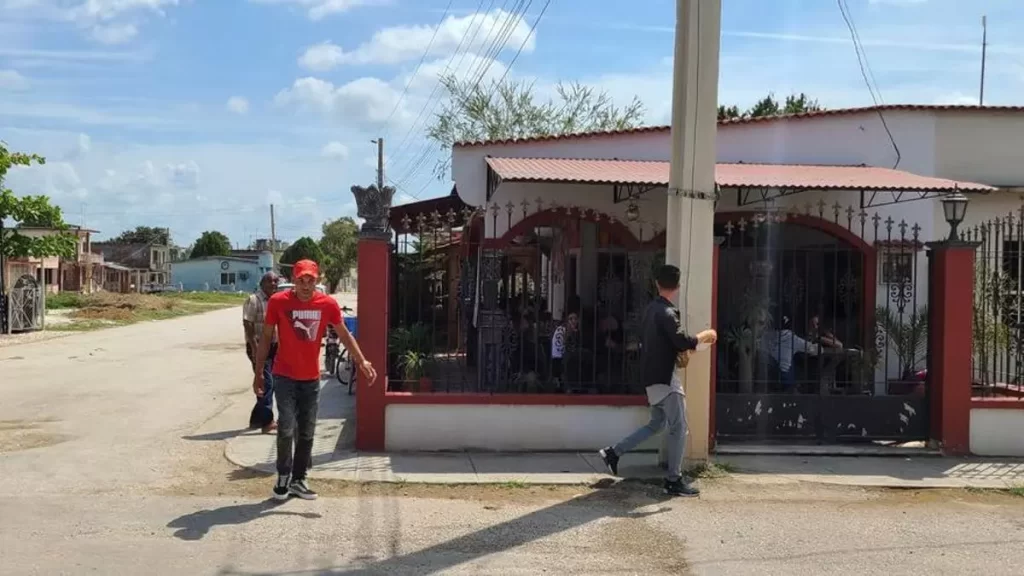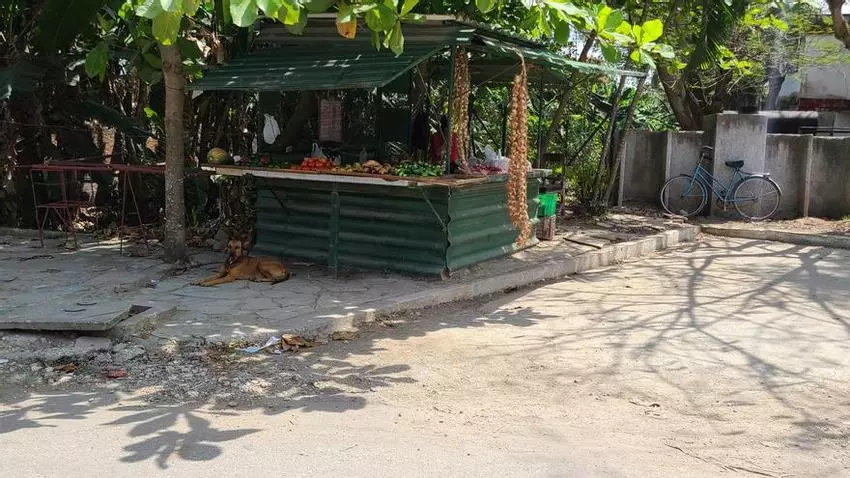
![]() 14ymedio, Pedro Espinosa, Cabaiguán (Sancti Spíritus), 6 April 2024 — Those who live in Cabaiguán, once one of the most prosperous municipalities of Sancti Spíritus, claim that the town is divided into two. Depending on your budget and whether or not you have a relative abroad, you can live in the rich part – with “good houses,” gated and with air conditioning – or in the poor part, with palm board homes, filthy streets, and unpainted facades.
14ymedio, Pedro Espinosa, Cabaiguán (Sancti Spíritus), 6 April 2024 — Those who live in Cabaiguán, once one of the most prosperous municipalities of Sancti Spíritus, claim that the town is divided into two. Depending on your budget and whether or not you have a relative abroad, you can live in the rich part – with “good houses,” gated and with air conditioning – or in the poor part, with palm board homes, filthy streets, and unpainted facades.
In reality, a walk through the town is enough to understand that the differences are not abysmal and that, to a greater or lesser degree, all Cabaiguan residents have a hard time. Common factors: long power outages, difficulty getting food and exorbitant prices.
Thanks to the flood of Canary Island emigrants who arrived in the town since the 19th century, many families have been able to leave Cabaiguán and settle in Spain. From there they support those who remained with remittances and food purchases, which couriers from companies such as Katapulk and Supermarket 23 distribute throughout the city.
Taking advantage of their Spanish nationality, many descendants of Canary Islanders “took advantage” and traveled to the United States
“It is a town of people with money,” admits Jesús, a 53-year-old from Cabaiguán, “especially because of the number of people who are abroad.” Taking advantage of their Spanish nationality, and before Washington required visas for citizens of that European country, many descendants of the Canary Islands “took advantage,” he adds, and traveled to the United States.
The municipality also became rich with tobacco – it is one of the best lands in Cuba for growing the leaf for the cigar filler – and, more recently, with the private sale of white and purple onions and other products throughout the country, agricultural crops that are planted in Banao, where the guajiros of Cabaiguán own land, despite the distance of 70 kilometers between these two points in the province of Sancti Spíritus.
However, onions are almost as expensive in Cabaiguán as in Havana. The explanation, says Jesús, is that the guajiro has to sell through intermediaries – among them, companies like Katapulk or Supermarket23 – who resell the local product and increase its cost. The same goes for many other articles. “Before things weren’t like this,” the man laments, “you could get cheaper food. That’s over and everything is astronomical.”
Tire repairers, carpenters, turners, farmers. The poorest Cabaiguanenses take on these jobs, which are abundant in the town, but many try to work for an ’MSME’. The owners of small and medium-sized businesses, in a municipality so close to the regime – Jesús believes – are usually people loyal to the Government.
This is the case, well known in the area, of Yoan Brito, owner of the El Biscuit paladar (private restaurant) and who is believed to have a close relationship with the authorities, alleges Jesús. Most MSMEs, like El Biscuit or El Patrón – another busy business – are cafes or restaurants.

“This is a town of carneros (slackers),” says Jesús, arguing that no one went out to protest on July 11, 2021 (11J), when massive demonstrations took place throughout the country. “Only one woman painted ‘Patria y Vida’ on the facade of her house, and there was an act of repudiation” against her. This is Sandra Hernández, an architect and mother of a little girl who, along with her husband, was harassed by a mob in those days. A video of Hernández went viral in which she reported that several agents had thrown ammonia under the door of her house so that asphyxiation would force them to leave it.
The young architect also showed how, during the act of repudiation and while the family remained locked up to protect themselves, the agents had crossed out the word “life” with oil and, in its place, had written revolutionary slogans. Months later, while Hernández showed – through a recording at full volume – her willingness to participate in the Civic March for Change called for November 15, a contingent from the Electric Company cut off his power.
“They turned my life upside down,” Jesús laments.
____________
COLLABORATE WITH OUR WORK: The 14ymedio team is committed to practicing serious journalism that reflects Cuba’s reality in all its depth. Thank you for joining us on this long journey. We invite you to continue supporting us by becoming a member of 14ymedio now. Together we can continue transforming journalism in Cuba.
